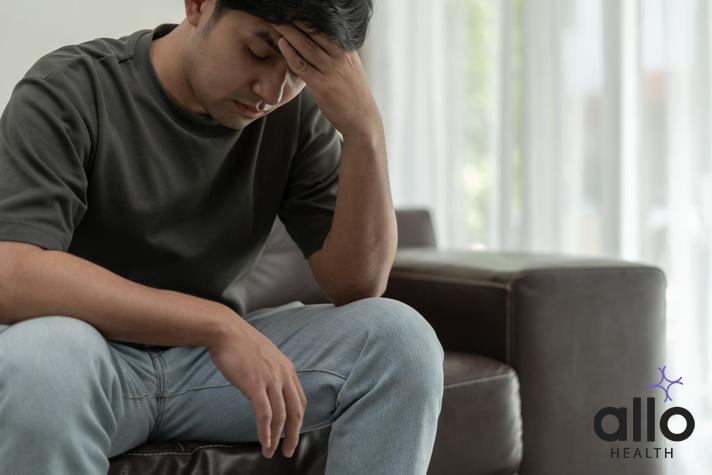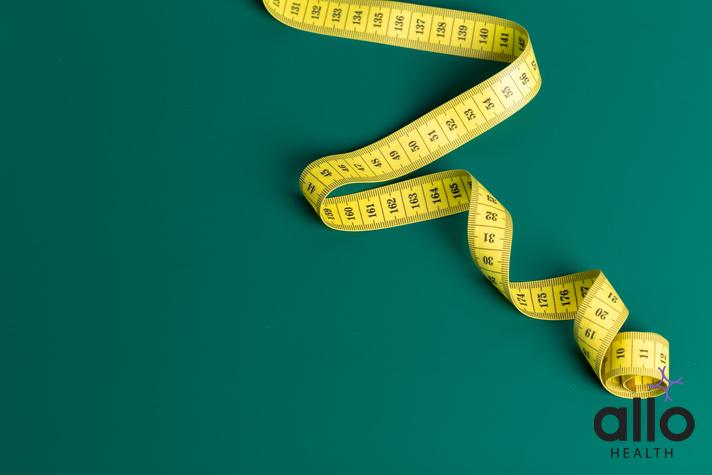Average Penis Size by Age

Allo Health is dedicated to personalized well-being, offering support and trusted information tailored to individual health goals. The platform emphasizes human-generated content, led by a distinguished medical team of experts, including physicians and sexual health specialists. Their commitment to credibility involves rigorous fact-checking, authoritative research, and continuous updates to ensure accurate, up-to-date information. Allo Health's unique approach goes beyond conventional platforms, providing expert-led insights and a continuous commitment to excellence, with user feedback playing a crucial role in shaping the platform's authoritative voice.

Dr. Warisha holds an MBBS degree from GMERS Medical College, Ahmedabad. She has an in depth experience on sexual and reproductive health and rights.
Why This Was Upated?
Our experts continually monitor the health and wellness space, and we update our articles when new information became available.
Updated on 05 July, 2024
- Article was updated as part of our commitment to diversity, equity, and inclusion.

"The following blog article provides general information and insights on various topics. However, it is important to note that the information presented is not intended as professional advice in any specific field or area. The content of this blog is for general educational and informational purposes only.
Book consultation
The content should not be interpreted as endorsement, recommendation, or guarantee of any product, service, or information mentioned. Readers are solely responsible for the decisions and actions they take based on the information provided in this blog. It is essential to exercise individual judgment, critical thinking, and personal responsibility when applying or implementing any information or suggestions discussed in the blog."
The average penis size by age is a topic of curiosity and concern for many individuals. It’s essential to understand the variations in penis size across different age groups to address concerns and misconceptions. This article explores the average penis size, factors affecting it, concerns around penis size, and available interventions.
What is The Average Penis Size by Age?
Average penis size varies by age, with changes occurring during different stages of development:
Infancy to Childhood:
- During infancy, penis size is relatively small, typically ranging from 1 to 2 inches in length.
- Genital development progresses during childhood, but sizes remain small, with variations influenced by genetics and hormonal factors.
Puberty:
- Puberty marks a significant period of penile growth due to hormonal changes.
- On average, boys experience a growth spurt in penis size, with lengths ranging from approximately 2 to 4 inches during early puberty.
- As puberty progresses, the penis continues to grow, reaching adult size by the end of adolescence.
Adolescence to Adulthood:
- By late adolescence, the average erect penis size ranges from 5.1 to 5.7 inches in length and 4.5 to 5.1 inches in girth.
- Factors like overall health, genetics, and lifestyle influence adult penis size, with variations among different ethnicities and populations.
Adulthood to Aging:
- Penis size typically remains stable into adulthood and early middle age.
- With aging, changes in muscle mass, blood vessel health, and hormonal levels may affect erectile function and penis size, leading to potential decreases in size and strength of erections.
Understanding the average penis size by age can help alleviate concerns and promote accurate information regarding sexual health and body image.
Factors Affecting Penis Size
Several factors influence penis size:
- Genetics and Ethnicity: Genetic inheritance and ethnic background play significant roles in determining penis size. Variations in genes and racial backgrounds can result in differences in penile dimensions.
- Puberty: Hormonal changes during puberty, including testosterone levels, stimulate penile growth. The onset and duration of puberty, influenced by factors like nutrition and health, affect penis size development.
- Age and Health: Age-related changes, such as fluctuations in hormone levels and overall health status, can impact penile size. Maintaining a healthy lifestyle with proper nutrition and regular exercise can support optimal penile development.
- Body Image and Mental Health: Concerns about penis size can lead to body image issues and anxiety, affecting mental well-being. Seeking support from mental health professionals can address these concerns and promote positive body image.
- Medical Conditions: Certain medical conditions, such as hormonal imbalances, can affect penile growth. Consultation with healthcare professionals, including urologists or sexual health specialists, can help address underlying health issues impacting penis size.
Concerns About Penis Size

Concerns about penis size often revolve around body image, self-esteem, and sexual confidence. Here are the main concerns:
- Body Image: Men may experience anxiety and dissatisfaction with their bodies if they perceive their penis size as inadequate compared to societal standards or personal expectations.
- Sexual Confidence: Concerns about penis size can undermine sexual confidence, leading to performance anxiety and inhibiting the ability to fully engage in sexual activities.
- Self-Esteem: A smaller-than-average penis size may contribute to feelings of inadequacy and lower self-esteem, impacting various aspects of life beyond sexual relationships.
- Social Stigma: Societal stereotypes and media representations of masculinity often equate larger penis size with virility and sexual prowess, leading to stigma and pressure to conform to unrealistic ideals.
- Relationship Dynamics: Fear of judgment or rejection based on penis size can strain intimate relationships and communication between partners, affecting overall relationship satisfaction.
- Peer Comparison: Men may compare themselves to others, either through direct observation or media influence, leading to feelings of insecurity and inadequacy.
Addressing concerns about penis size requires understanding that size is just one aspect of sexual satisfaction and overall well-being. Seeking support from healthcare professionals or mental health specialists can help individuals navigate these concerns and build confidence in themselves and their relationships.
Impact of Enhanced Penis Size in Sexual Experience
Enhanced penis size can impact sexual experiences and confidence in several ways:
- Increased Pleasure: A larger penis may provide more intense stimulation for both partners during sexual activity, enhancing sexual satisfaction and pleasure.
- Improved Confidence: Individuals with larger penises may feel more confident in their sexual abilities and appearance, reducing anxiety and enhancing sexual performance.
- Perception of Sexual Competence: Society often associates larger penis size with sexual prowess and competence, leading to increased self-esteem and perceived sexual desirability.
- Partner Satisfaction: Some partners may prefer or enjoy sexual experiences more with a larger penis, leading to enhanced mutual satisfaction and intimacy.
- Visual Stimulation: A larger penis may visually stimulate partners and contribute to arousal, enhancing the overall sexual experience.
- Exploration of Sexual Positions: With a larger penis, individuals may feel more comfortable and capable of exploring various sexual positions and techniques, further enhancing sexual pleasure and satisfaction.
However, it’s crucial to recognize that sexual satisfaction involves many factors beyond penis size, including communication, emotional connection, and overall sexual compatibility. Additionally, concerns about penis size can lead to anxiety and body image issues, impacting sexual confidence and performance negatively. Therefore, while enhanced penis size may offer some benefits, it’s essential to prioritize overall sexual health, communication, and mutual satisfaction in sexual relationships.
Determining Accurate Penis Size

To determine your penis size accurately:
- Use a Measuring Tape: Get a soft measuring tape for precise measurements. Avoid using rigid objects that may cause discomfort or inaccuracies.
- Measure Length: With the penis in its fully erect state, press the ruler against the pubic bone at the base of the penis. Extend the ruler along the top of the penis to the tip. Record the measurement in inches or centimeters.
- Measure Girth: Wrap the measuring tape around the thickest part of the penis shaft, ensuring it’s snug but not tight. Record the measurement in inches or centimeters.
- Avoid Errors: Ensure the penis is fully erect for accurate measurements. Measure at least twice to confirm consistency and accuracy. Take measurements at different times to account for variations.
- Consult Professionals: If unsure or concerned about measurements, consult healthcare professionals or sexual health specialists for guidance. They can provide accurate measurements and address any concerns or anxieties about penis size.
- Recognize Normal Variations: Understand that penis size varies among individuals, and being within the average range is normal. Focus on sexual competence, confidence, and satisfaction rather than solely on size.
Ways to Enhance Penis Size
- Healthy Lifestyle: Maintaining overall health through regular exercise, balanced nutrition, and adequate sleep can positively impact penile health and function, potentially influencing penis size.
- Non-Surgical Methods: Techniques such as using penis pumps or vacuum pumps claim to temporarily increase penis size by drawing blood into the penis. However, their long-term efficacy and safety remain questionable.
- Medical Interventions: In some cases, healthcare professionals may recommend nonsurgical interventions like penile traction devices to stretch the penis tissue gradually. These methods aim to promote penile growth over time.
- Penis Enlargement Surgeries: Surgical techniques, such as penile lengthening surgeries or penile augmentation procedures, are available for individuals seeking permanent increases in penis size. However, these procedures carry risks and may not always lead to satisfactory outcomes.
- Consultation with Healthcare Professionals: Individuals concerned about penis size should consult with urologists, sexual health specialists, or mental health professionals. These professionals can provide guidance, address concerns, and discuss available options tailored to individual needs and circumstances.
Risks and Considerations of Altering Penis Size
- Surgical Risks: Penis enlargement surgeries, such as penile lengthening or girth enhancement procedures, carry risks like infection, scarring, and loss of sensation, which may impact sexual satisfaction and function.
- Psychological Impact: Altering penis size may not always alleviate concerns about body image or sexual performance, leading to ongoing anxiety or dissatisfaction, potentially exacerbating conditions like penis anxiety or body dysmorphic disorder.
- Unpredictable Outcomes: Surgical techniques for altering penis size may not always produce desired results, leading to dissatisfaction with appearance or function, and necessitating further medical interventions.
- Health Consequences: Non-surgical interventions like penis pumps or vacuum pumps may cause temporary enlargement but can also result in injury or damage to blood vessels, affecting arterial blood supply and leading to weaker erections or other complications.
- Financial Costs: Penis enlargement surgeries or non-surgical interventions can be expensive, and individuals may invest significant financial resources without guaranteed outcomes or satisfaction, adding financial stress and disappointment.
- Impact on Sexual Experience: Altering penis size may not necessarily improve sexual performance or satisfaction, as sexual competence and mutual satisfaction depend on various factors beyond size alone, such as communication, intimacy, and technique.
Conclusion
Understanding average penis size by age is essential for promoting body positivity and addressing concerns related to penis size. It’s crucial to recognize that penis size varies among individuals and does not solely determine sexual satisfaction or performance. Seeking accurate information and professional guidance can help individuals navigate concerns and make informed decisions about their sexual health and well-being. Remember, size matters less than sexual competence, confidence, and mutual satisfaction in sexual relationships.
Most Asked Questions
-
What is considered an average-sized penis?
An average-sized penis typically ranges from about 5.1 inches to 5.7 inches when erect. For flaccid penises, the average length is around 3.5 to 4 inches, with a girth of approximately 3.6 inches.
-
Can penis size change with age?
Yes, penis size may change with age due to factors like hormonal fluctuations and overall physical health. During puberty, hormonal changes stimulate penile growth, but size variations can occur throughout adulthood as well.
-
Is it normal to worry about penis size?
It’s common for individuals to have concerns about penis size, but it’s essential to understand that there is a wide range of normalcy. Penis size alone does not determine sexual satisfaction or performance. Seeking professional guidance can help address concerns and promote body positivity.
-
Are there safe ways to address concerns about penis size?
Yes, there are safe ways to address concerns about penis size. Consulting healthcare professionals, such as urologists or sexual health specialists, can provide guidance and support. It’s important to avoid risky interventions like penis enlargement surgeries and instead focus on overall sexual health and well-being.











































